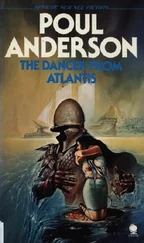Obviously they weren’t going to split up. Vibe was his best friend, his closest and most trusted ally. She knew Elvira and Knud, she knew why he had grown up with his grandparents; she was family and he loved her. Søren hugged her tightly that night and they agreed to give it some time or, more accurately, they agreed that if Søren didn’t change his mind very soon, he would have to go.
Søren was born in Viborg in Jutland. For the first five years of his life he lived with his parents. His maternal grandparents, Knud and Elvira, lived nearby in his mother’s childhood home which lay outside a small village, on a hill, with a garden that sloped steeply down behind the house. The lawn was impossible to mow, and the long tangled grass offered numerous places to hide. Søren had hardly any memories of his earliest childhood, but he remembered Knud and Elvira’s red house vividly, probably because it was there that Knud had told him his parents had been killed in a car crash. Knud and Elvira had been looking after him that weekend; Søren’s parents had borrowed their car and driven off on an adventure. He remembered being told at the far end of the garden one summer’s evening with Spif, the dog, standing next to him, barking. The next childhood memory he could clearly recall was their move to Copenhagen, to the house in Snerlevej. Knud and Elvira were teachers and both got jobs at the nearby public school, which Søren also attended. Søren lived in Snerlevej for the rest of his childhood. Far, far away from the red house.
Søren and Vibe had been together for almost six months when Vibe figured out that a generation was missing between Søren and the couple she—up until that moment—had assumed to be his parents. It hit to her one summer’s day when Søren was in the kitchen making iced tea. Elvira had already gone outside; they could hear her spreading a cloth over the garden table and insects buzzing in the uncut grass. While Søren mixed the tea in a pitcher, Vibe studied the wedding photograph of Søren’s parents that was standing on the sideboard in the dining room. Suddenly a dark cloud of wonder spread across her face, and she scrutinized the photograph as if seeing it properly for the very first time. She looked as if she wanted to say something, but then thought better of it.
Later, they were lying on Søren’s bed listening to records.
“Who were the people in the photograph?” Vibe asked, at last. Søren turned over and folded his hands behind his head.
“My parents,” he said. Vibe was silent for a moment, then she jerked upright.
“But they can’t be,” she burst out.
“Why not?” Søren looked at her.
“Well, because you can’t change your eye color, and in that picture, Knud has brown eyes and…” she frowned. “And now they’re blue. Your parents have blue eyes.” She looked at Søren. “And yours are brown,” she whispered.
Søren rolled over, rested his elbows on the mattress, and cradled his chin in his hands. It would only take a minute to fetch the dusty box from the attic and show it to Vibe. After all, it was no secret that Elvira and Knud were his grandparents, though they never talked about it. It was just the way it was.
“Knud and Elvira are my grandparents,” he said. “My parents died when I was five years old. In a car crash. The photograph on the sideboard is of them. My parents on their wedding day. Their names were Peter and Kristine.”
Vibe lay very still.
It was Jacob Madsen’s father, Herman, who inspired Søren to become a policeman. Jacob also lived in Snerlevej, and he and Søren were friends. Herman Madsen was a sergeant in the CID, and Søren looked up to him. Jacob had an older sister and a mother who worked part time in a library. His family was different than Søren’s. Jacob’s parents weren’t hippies. Not that Elvira and Knud were—not proper hippies anyway—but their left-wing politics regularly created mayhem in the living room, where meetings were held and banners painted. They frequently protested against nuclear power, and though Søren was proud of his grandparents, he always enjoyed walking down the road and into the haven of peace that was Jacob’s house. Jacob’s father would come home from work and make himself comfortable in his winged armchair with the newspaper, Jacob would lie on his bed reading comics, and Jacob’s mother would be in the kitchen making mashed potatoes or hamburgers. At Søren’s they ate oddly concocted casseroles, salads topped with chopped up leftovers, and a lot of oatmeal.
When dinner was ready at Jacob’s house, his mother would strike a small gong and everyone would gather. When Jacob’s father joined them, the children would go very quiet. Sometimes, but not always, he would tell them the stories they were so desperate to hear. They knew from experience that if they pestered him before they had eaten, he would usually remain silent; however, if they were good and only said “pass the salt please,” and let Jacob’s father eat some of his dinner in peace, he would open up.
“Herman, not while we’re at the table,” Jacob’s mother would sigh.
The children waited with bated breath until Herman started telling them about murdered women, kidnapped children, hidden bodies, and vindictive ex-husbands. The two boys, especially, were riveted once Herman got into his stride. At some point he started giving the boys murder mysteries to solve, and Søren got so excited about going to Jacob’s house that Elvira, rather anxiously, asked if it really was all right with the Madsens that Søren ate with them three times a week. Oh, yes, Søren had replied. It became a kind of real-life game of Clue where Herman knew who the killer was, where the murder had been committed, what the motive was, and which murder weapon was used, but it was up to the boys to come up with a plausible scenario. Herman taught them how to think, and Søren displayed considerable aptitude. Though he was only twelve years old, he could spot connections and produce explanations that, at times, were really quite far-fetched, but that to both Søren’s and Herman’s surprise—and to Jacob’s irritation—often turned out to be correct. Søren had no idea how he did it. It was as if he visualized a network of paths through which he could, quite literally, trace the solution to the mystery. He could keep track of everyone involved in the case, even though Herman would frequently throw in some red herrings to confuse the boys. In addition, Søren was a skilled bluffer with the ability to ask seemingly innocent questions, only to suddenly come up with the answer to the whole mystery.
When Jacob went off to boarding school, Søren felt awkward going to his house. Besides, he had started high school and met Vibe, and the riddle-solving faded into the background, except on Sundays when Herman washed the family’s Peugeot on the driveway. Søren would swing by for an update on the week’s events at the police station, and Herman would always have a mystery for him to crack. It wasn’t until Søren was an adult that he started questioning just how much of what Herman had told them had actually been true. After all, he must have had a duty of confidentiality.
At eighteen Søren left home and got his own place in Copenhagen. One day, a year later, when he returned home for a dinner with Elvira and Knud, a moving van was parked outside Jacob’s house, but there was no one around apart from four moving men carrying boxes and furniture. The next time Søren visited his grandparents, two unknown children were playing on Jacob’s old front lawn. Søren watched them and made up his mind to become a policeman.
Søren quickly became the family’s official detective, charged with finding lost items such as reading glasses, user manuals, and tax returns. He asked a lot questions, and nine times out of ten he would locate the missing object. Knud’s reading glasses lay on top of his shoes in the hall where he had bent down to scratch his ankle, the user manual for the coffee maker was in the trunk of the car, on top of a box of telephone books for recycling, and the tax return was found in the ashes in the fireplace because Elvira, in a moment’s distraction, had scrunched it up and thrown it there.
Читать дальше











